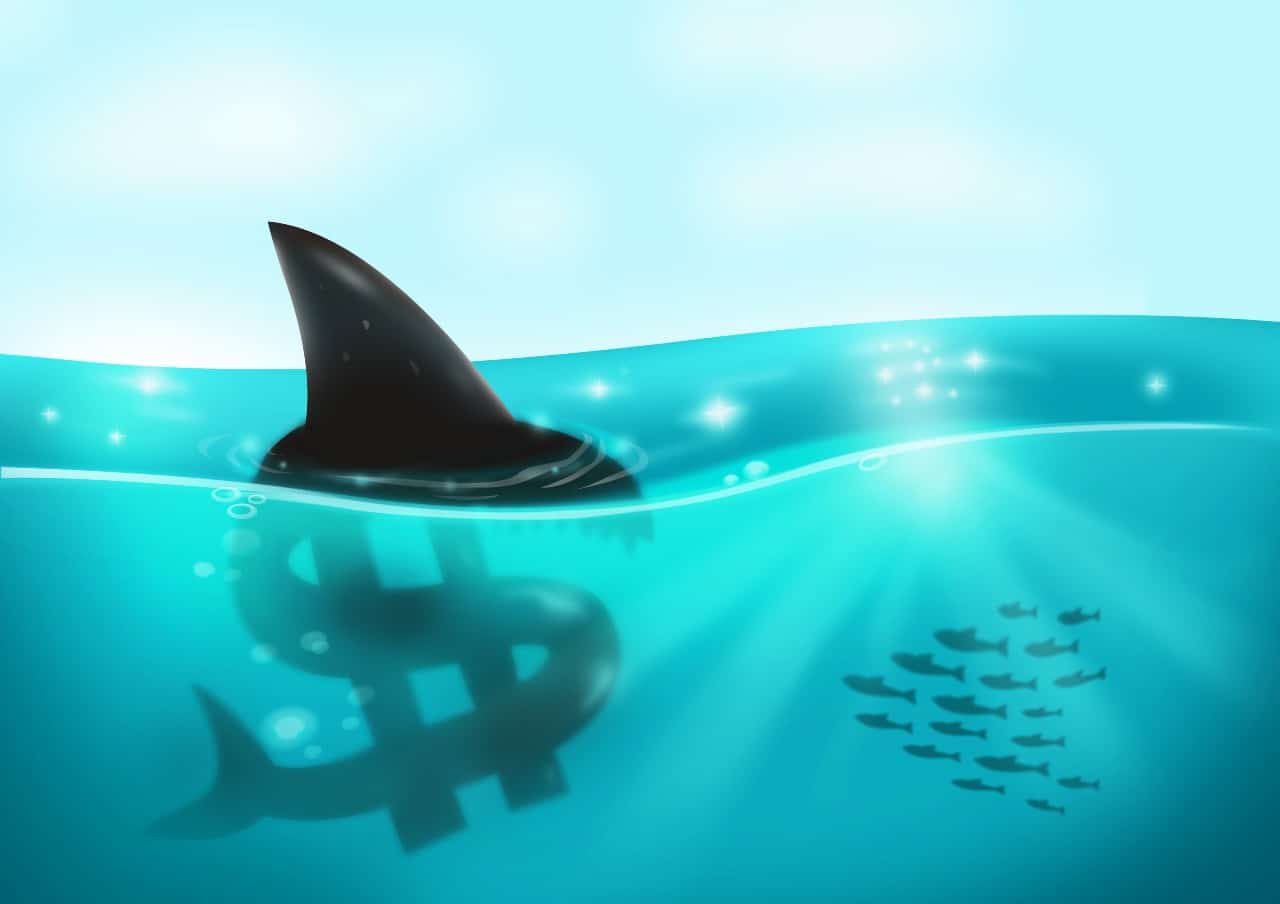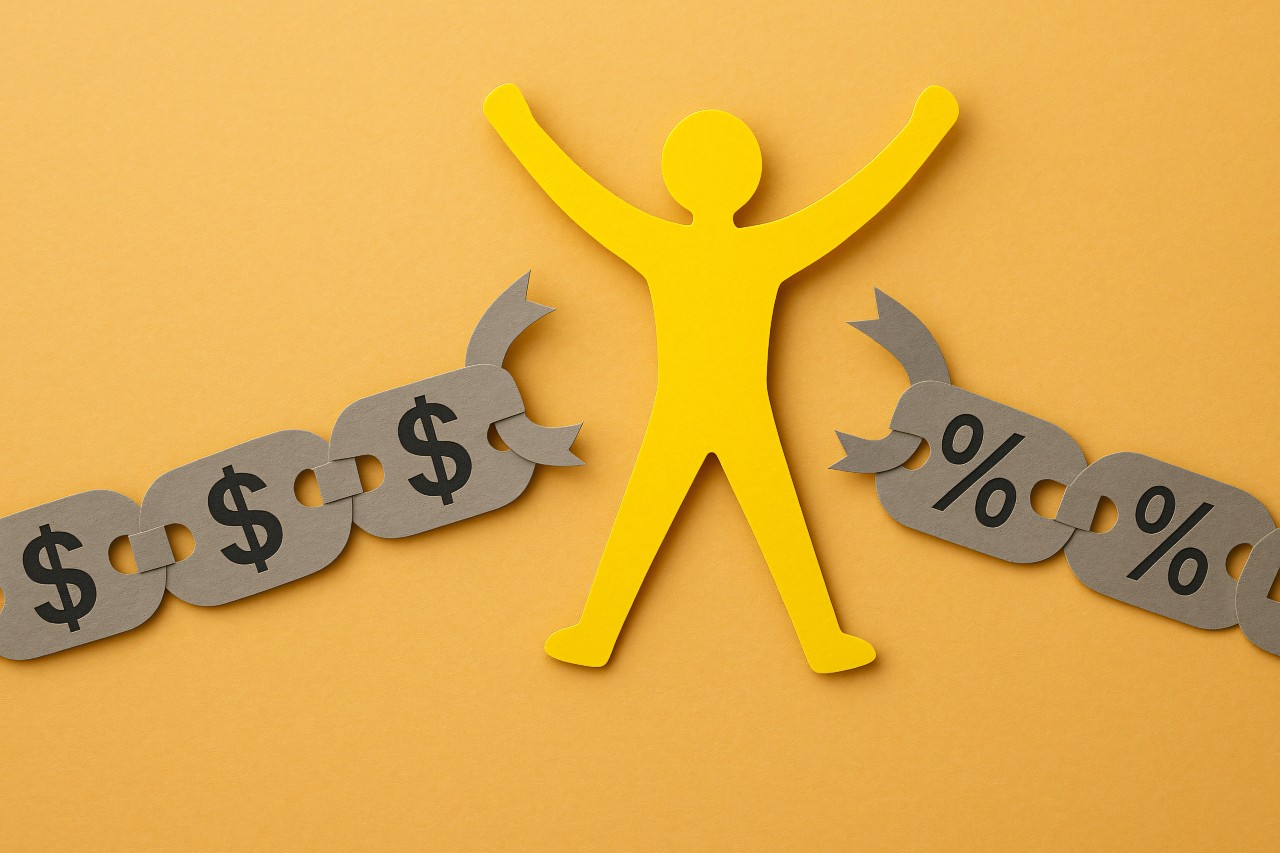When money is already tight, an unexpected expense can make things way harder. Interest rates are already high, and accrued interest can make debt quickly go out of control. Our reader, Barry, has found himself in this very scenario. Read along as personal finance expert Mubina guides Barry through how to navigate this difficult situation.
The question
Dear experts,
Barry, M
I won’t get into all the details, but money has been really tight. I eventually owed my cellphone company $3,407. The balance kept increasing and, eventually, they ended up suspending my service. I tried to cancel, but the cancellation department said that the balance must be paid before I can cancel.
Eventually, it was sent to collections. My credit report says that the current balance with interest is now $5907. I tried negotiating with the company, but they will not budge on either the interest or principal amount.
I’ve been told by one of their reps that the contract I signed said that I agreed to being charged interest post-cancellation. Is this legal? I did sign the contract, but doesn’t the Consumer Protection Act prohibit this kind of thing?
Victoria, BC
The answer
I’m truly sorry to hear about the situation you’re facing with your cellphone company and the escalating debt. Your experience around refusal to cancel services or negotiate and the escalating accrued interest, which has resulted in a high account balance, raises significant questions about consumer rights and contract enforceability. Let’s break down the general principles surrounding these issues, including how the Consumer Protection Act might apply and what could possibly be your next steps.
What is accrued interest?
Let’s begin with this crucial question. Out of the $5907 account balance, a good 40% comprises interest. It’s natural to wonder how interest accrues such that it amounts to close to half of your initial outstanding principal amount.
The interest calculation is a percentage of the principal amount you owe for the period it remains unpaid. This percentage is the Annual Percentage Rate (APR), a term commonly seen in credit card and other loan agreements. The longer an amount remains unpaid, the more interest builds up, or accrues. This process continuously repeats. Interest accumulates on your outstanding balance until it’s fully settled. Thus, accrued interest is simply the interest that has accumulated but hasn’t been paid off yet, or interest payable.
How quickly this interest adds up depends on two key factors. The first is the APR percentage. The second is how often the interest is charged. For instance, credit card companies typically calculate interest daily, which means the interest on your balance compounds very quickly, leading to a higher average daily balance. In contrast, mortgages and many other loans usually calculate interest on a monthly basis. Adjustments are made depending on the frequency of calculation. For example, if interest is being calculated every month, the APR must be divided by 12 and then applied to the principal outstanding. You can generally find the exact policy for accrued interest calculation detailed in your contract.
What does the Consumer Protection Act say?
Let’s address your query about whether the Consumer Protection Act limits the cellphone company’s ability to charge you unlimited interest. The short answer is, not exactly. However, you may find some answers in the CRTC’s Wireless Code. That’s the code that regulates cellphone contracts and protects consumers from unfair practices. This includes cancellation fees and unexpected charges. The Code requires that the agreement outline the process for unpaid bills. You may want to seek legal advice on whether the continued accrual of interest after the suspension of service could be considered ‘unfair,’ even if it was explicitly stated in the contract you signed.
What happens next?
When an individual consistently misses payments, cellphone providers may suspend services and pass the account to a debt collection agency. The agency will then pursue recovery of the full amount owed, including the principal amount, accrued interest, and possibly additional penalties related to the delayed payments. In some cases, legal action may also be taken.
Your credit score will also take a hit. You may have a “multiple missed payment” remark on your credit report. These kinds of debts usually remain on credit reports for up to 6 years. If your account has been sent to a debt collection agency, your credit rating will drop to the lowest level, that of bankruptcy. This will severely impact your ability to take new lines of credit, like loans and will also lead to a much higher interest expense for any current variable-rate line of credit that may be outstanding.
Your options
If the cellphone service provider has indeed sold off your debt to a debt collection agency, there may be an upside. They may be more receptive to discussing options. This may include negotiating a lower lump sum settlement or perhaps a payment plan that’s financially feasible for you. Do remember that once you’ve agreed to a payment plan, you must adhere to it. Get all agreements with the agency in writing. Ensure that once you’ve paid off the debt, your credit report reflects the same.
Consumer proposal
A Consumer Proposal is another option that helps freeze the interest accruals. You will have to contact a Licensed Insolvency Trustee who will go through your entire documentation and prepare a debt management plan. Then you work with your lenders to bring down your outstanding balance to a more manageable amount. However, do remember that this would encompass all your debts, not just your cellphone bills. Consumer Proposals bunch together any of these other unpaid bills as well. The purpose of a Consumer Proposal is to provide a fair and equitable settlement to all your unsecured creditors, which is why all eligible debts must be included.
Bankruptcy
Declaring Bankruptcy is also an option, but that’s only if you’re in really dire straits. It would be like wiping your slate clean, but it will remain on your credit report for at least 6 years and is a big red flag for not just financial lenders but even landlords. Hence, proceed with caution.
Negotiate
Finally, request the cellphone provider to come back to the negotiating table. I’m certain they would be happy to receive something instead of nothing if you show a willingness to pay a certain amount to begin with and set up a payment plan for the balance.
Dealing with accrued interest and unyielding service providers can feel overwhelming, especially when interest expenses seem to go out of control. While your situation is undoubtedly difficult, you do have options, whether through negotiation or debt restructuring options like a consumer proposal. Review the contract you signed and act proactively. Consider seeking professional, financial or legal advice to help guide your next steps.
Have a financial question you’d like answered?
Post the question to our Facebook page and we’ll get one of our experts to answer it! We’ll post the response right here in our blog section.










